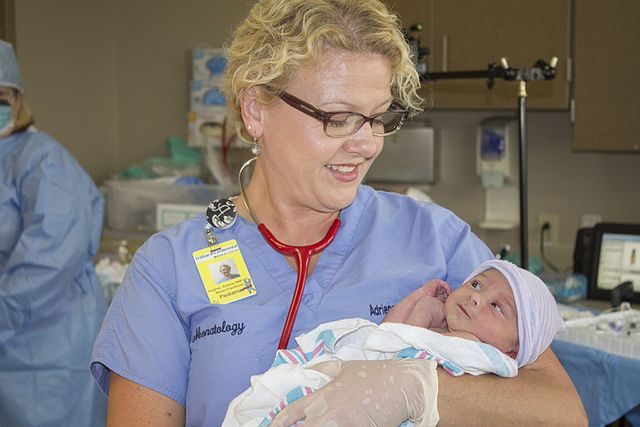Email us if you want to showcase your mind-boggling Articles.

What Is Skilled Nursing Facility: Providing Essential Care and Support
Talking about what is Skilled Nursing Facility, a skilled nursing facility (SNF) plays a vital role in providing specialized care and support for individuals with complex medical needs. These facilities are designed to offer comprehensive healthcare services to patients who require continuous medical attention and assistance with daily activities.
A Skilled Nursing Facility (SNF) is a medical care center that provides 24-hour skilled nursing care for patients who require a high level of care beyond what can be provided at home or in an assisted living facility. These facilities are staffed with trained healthcare professionals who offer a range of medical services, including administration of medication, wound care, and rehabilitation therapy. Patients in SNFs typically have complex medical conditions and require ongoing medical attention from skilled nurses and doctors. SNFs are regulated by federal and state agencies to ensure that patients receive high-quality care in a safe environment. Now we know what is Skilled Nursing Facility, let’s read more about its purpose, scope, and so on.
What Is Skilled Nursing Facility: The Purpose and Scope of Skilled Nursing Facilities
Skilled nursing facilities are an essential component of the healthcare system, catering to patients who need a higher level of care than what can be provided at home or in an assisted living facility. These facilities serve individuals recovering from surgeries, managing chronic illnesses, or dealing with debilitating conditions that require constant monitoring and medical intervention. Let’s continue to read about what is Skilled Nursing Facility below.

Distinguishing Features of Skilled Nursing Facilities
Skilled nursing facilities stand out due to their unique characteristics and capabilities. Unlike other healthcare settings, SNFs are equipped with highly trained medical professionals, including registered nurses, licensed practical nurses, and certified nursing assistants. Additionally, these facilities have access to specialized medical equipment and advanced technologies, ensuring the delivery of efficient and effective care. Below is more information on What Is Skilled Nursing Facility.
The Range of Services Offered in Skilled Nursing Facilities
Skilled nursing facilities provide a wide array of services to address the diverse needs of their residents. These services encompass both medical and non-medical aspects of care. Medical services include administering medications, wound care, physical therapy, occupational therapy, speech therapy, and monitoring vital signs. On the other hand, non-medical services may include assistance with daily activities, such as bathing, dressing, eating, and mobility support.
Collaborative Care Approach in Skilled Nursing Facilities
One of the key strengths of skilled nursing facilities is their interdisciplinary approach to care. A collaborative team of healthcare professionals, including physicians, nurses, therapists, and social workers, works together to develop personalized care plans for each resident. This holistic approach ensures that all aspects of a resident’s well-being are addressed, promoting optimal recovery and quality of life.
Admission and Eligibility Criteria
Admission to a skilled nursing facility is typically based on a comprehensive assessment of an individual’s medical needs and functional abilities. Eligibility criteria may vary depending on the specific facility and the region. Generally, individuals who have undergone surgery, experienced acute medical events, or require intensive rehabilitation are considered suitable candidates for skilled nursing facility care.
Benefits of Skilled Nursing Facility Care
Skilled nursing facility care offers numerous benefits to patients and their families. Firstly, these facilities provide a safe and secure environment with round-the-clock supervision and support. Patients can access skilled medical professionals whenever needed, ensuring prompt attention to their healthcare needs. Additionally, SNFs offer a structured and monitored setting for rehabilitation, helping individuals regain their independence and improve their functional abilities.
The Role of Skilled Nursing Facilities in Long-Term Care
Skilled nursing facilities also play a crucial role in long-term care. For individuals with chronic conditions or progressive illnesses, SNFs provide a stable and consistent environment for ongoing management and support. These facilities often collaborate with other healthcare providers and community resources to ensure continuity of care and facilitate a seamless transition between different care settings.
Making an Informed Decision
When considering skilled nursing facility care for yourself or a loved one, it is essential to gather information, visit potential facilities, and ask relevant questions. Factors such as location, quality of care, staffing ratios, availability of specialized services, and resident satisfaction should be taken into account. Engaging in open communication with the facility’s staff and assessing the environment firsthand can help in making a well-informed decision.
Conclusion
In conclusion, if you want to know about what is a skilled nursing facility, you should keep in mind that a skilled nursing facility serves as a vital healthcare resource for individuals requiring comprehensive and specialized care. By offering a range of medical and non-medical services, SNFs strive to enhance the well-being and quality of life for their residents. The collaborative approach in skilled nursing facilities ensures that patients receive personalized care tailored to their unique needs. From post-surgical recovery to chronic disease management, these facilities provide a supportive and nurturing environment for individuals in need of continuous medical attention.
When exploring skilled nursing facility options, it’s important to consider factors such as the facility’s expertise, services provided, and the overall atmosphere. Assessing the qualifications and experience of the medical staff, as well as the availability of specialized therapies, can help determine if the facility is well-equipped to meet specific healthcare needs.
While skilled nursing facilities offer professional medical care, they also focus on enhancing residents’ overall well-being. Social and recreational activities are often organized to foster a sense of community and promote mental and emotional wellness. Engaging in these activities can help residents maintain a fulfilling and enriching lifestyle during their stay.



